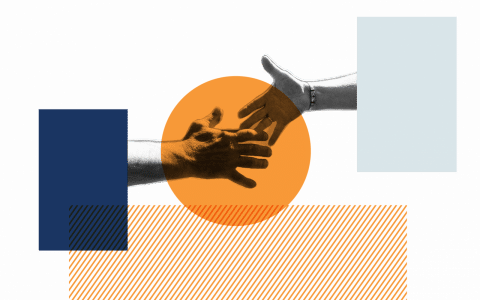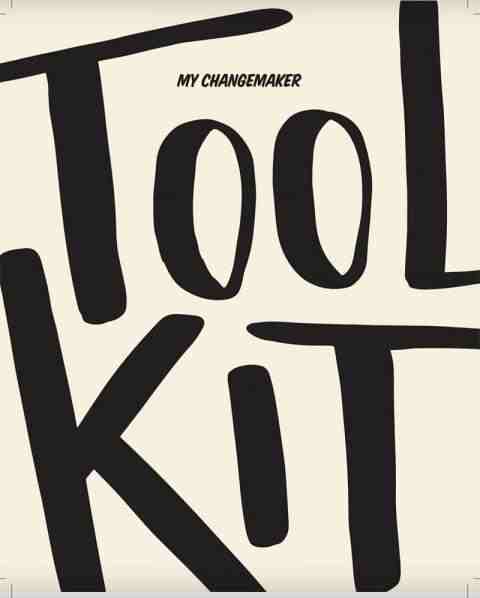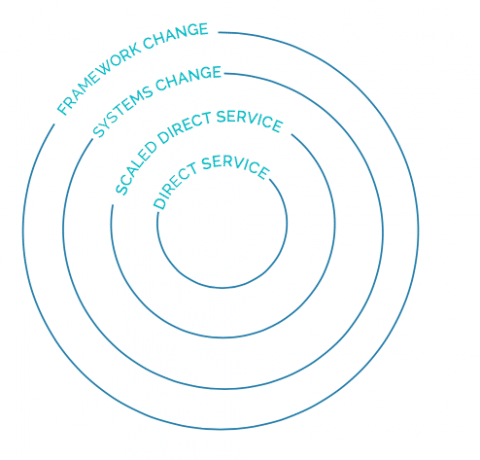In this moment, as we work to find more social entrepreneurs addressing systemic racism and its effects, we also look to veteran Ashoka Fellows closest to the issues – for perspective, insight, and wisdom rooted in lived experience and decades of work.
Fellow Van Jones has become a guide and translator for many during these weeks: watch here, here and here – and here for families and children. Van became an Ashoka Fellow 20 years ago, selected in our first class of 4 U.S. Fellows for his work to address racial bias and police violence via Ella Baker Center for Human Rights that he started in Oakland in 1996, see here. You can follow Van on Twitter: @vanjones68
Fellow Yeshimabeit Milner started Data for Black Lives, a movement of activists and data scientists using data to inform protest, accountability, and collective action. In a letter of solidarity with Black Minnesotans, Yeshimabeit shares how for Black people, Minneapolis is a metaphor for our world. Follow on Twitter: @YESHICAN and @Data4BlackLives
Fellows Mauricio Lim Miller and Trabian Shorters caution about paternalism on the part of the social sector and explain how well-meaning people, philanthropists, and institutions often reinforce racism by defining people by their needs and challenges, not by their strengths, aspirations, and contributions. Read here and here.
Fellow Morgan Dixon co-founded Girltrek, a community of 500k+ Black women who walk for their health and the health of their community, drawing inspiration from their foremothers who survived slavery and fought for a better world for their daughters. Morgan and team launched a Black History Bootcamp that runs for 21 days, a special call to action at this time. Follow on Twitter: @MorganTreks and @GirlTrek
More Ashoka Fellow-led teams addressing systemic racism in America and its effects:
Algebra Project – math literacy as an organizing tool for quality education for all children
Alive and Free – transforming the lives of young people by treating violence like a disease
BanQu – building more equitable global supply chains where everyone can participate in the global economy
Baltimore Corps – nurturing young people of color to be innovators for the public
Bell – supporting all young people to thrive at school and in life
Beyond 12 – supporting young people of color to succeed in college
BMe – next narrative of Black men in America that focuses on their contributions as fathers, community changemakers, and entrepreneurs
Data 4 Black Lives – movement of activists and data scientists using data to inform protest, accountability, collective action
DigDeep – water infrastructure in communities left out due to historic racism
Docs for Tots – fosters connections between young children’s doctors, policymakers, early childhood practitioners
Ella Baker Center for Human Rights – justice, opportunity, and peace in urban centers
Embarc – expanding freedom and worlds of belonging for high school students growing up in insular inner city neighborhoods
Essie Justice Group – network of women with incarcerated loved ones working toward criminal justice reform
Faith Matters Network – connecting young faith-rooted leaders in the American South with social movements
Freedom U – right to education for young people who are undocumented, in the spirit of the Civil Rights movement
GirlTrek – 500k+ Black women walking for health, healing, and community change
Greening Youth Foundation – building an inclusive and diverse environmental movement
Kindred – transforming school communities in service of racial equity
Mission Asset Fund – financial access and belonging for immigrant families and businesses
Movement Law Lab – lawyers working hand in hand with justice movements
Of/By/For All – making sure our public and cultural institutions are truly for the public, owned and embraced by all groups
Onward – employer-sponsored mobile savings that enables workers of all income levels to build financial security
People’s Institute for Survival and Beyond – focuses on understanding racism, how it works, how it can be undone
Prosecutor Impact – shifting culture and norms of prosecutors in the U.S.
National Domestic Workers Alliance – worker rights for caregivers, most of whom are women of color
Native American Community Academy – network of community-inspired school communities with Indigenous language and history at the core
NDN Collective – supporting Indigenous changemakers to thrive
Participatory Defense – engaging the families of people unfairly accused of crimes in their legal defense
Stand for Children – ensuring all children success at school, whatever their skin color, zip code, or first language
The Birthing Project – communities of Black mothers supporting each other for healthy babies and healthy lives
Think of Us – reforming the foster care system with input from those most affected – young people in the system or “aging out”
Thread – re-imaging families of support for high school students
Upstream – extending full range of contraceptive options to teens and women in all communities
Village of Wisdom – parents of Black children working with (White) teachers and the education system to lift up children’s gifts and contributions – their Black genius – as a starting point for engaged learning.
WeThrive – helps underestimated young people own their future through entrepreneurship – i.e., starting their own companies
All Ashoka Fellows – 3,800+ Fellows in 90+ countries – work on solving systemic social problems. Equality is a value at the heart of the movement. Follow on Twitter @AshokaUS for more perspectives and solutions from Ashoka Fellows, as well as reflections from a change journey that began for us in 2015 with our commitment to support many more innovators from all of America – from diverse backgrounds and walks of life that together reflect the full diversity and dynamism of the country. This commitment grew out of an examination of our network and our implicit biases. Results so far in this journey (since 2016) include: doubling the percentage of new U.S. Fellows who are people of color – 48% of U.S. Fellows elected since 2016 are people of color. In addition, 63% of U.S. Fellows elected since 2016 are women, and 73% hail from under-represented geographies, including rural America, smaller towns and cities, and American Indian lands. Moving forward, we know we can do more, and we recommit to this effort, our statement this week:
Emerging Insights 2019: Civil Society
Ashoka Fellows are working for reforms in justice systems and creating new avenues for civic engagement. Major strategies involve creating networked communities who are armed with knowledge to advocate for transparency within systems that have become closed. From making the process of obtaining legal advice easier for asylees in the United States to holding local governments accountable in Mexico, social entrepreneurs are at the frontlines of ensuring vibrant and active civil societies.


